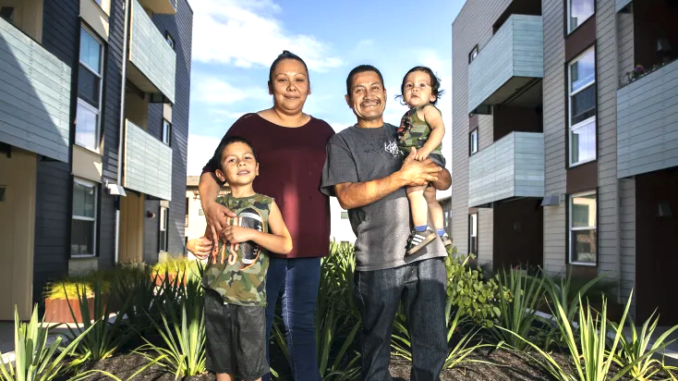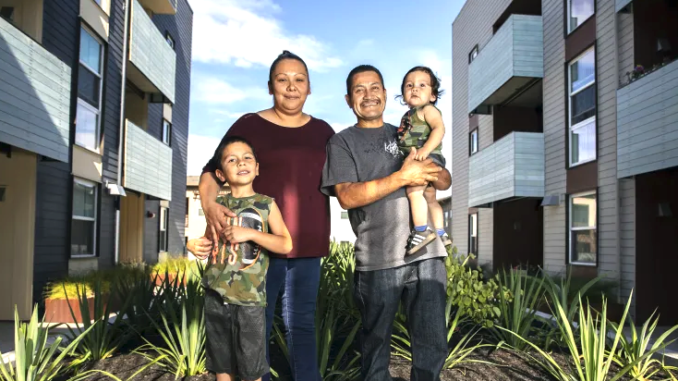
BY BRADEN CARTWRIGHT
Daily Post Staff Writer
A regional agency today (Aug. 14) removed a $20 billion housing bond measure from the November ballot after a group of taxpayer advocates sued saying the ballot language was misleading.
“This decision is a win for Bay Area taxpayers, and a win for affordable housing,” opponent Gus Mattammal said a statement today. “To address housing affordability in a meaningful way, we have to address root causes, not soak taxpayers for billions of dollars at a time using bonds that would waste two thirds of the revenue on interest and overhead while barely making a dent in the issue.”
The opposition group, called 20 Billion Reasons, said the housing shortage has been created by the Legislature and “the corporate interests to which they are beholden.” The group said it is easier to raise taxes than it is to address the reasons why housing is in short supply.
The Bay Area Housing Finance Authority board, made up of elected officials throughout the nine Bay Area counties, voted to drop Regional Measure 4 this morning — the last day it could have been pulled from the ballot.
Proponents of the measure were hoping that in the same election, voters would pass Prop. 5, which would lower the threshold for the approval of new taxes from two-thirds to 55%. That would have made it easier for the housing bond measure to pass.
Polling data from March showed that the housing bond’s yes vote, including “lean yes,” was around 50%, housing authority Executive Director Andrew Fremier said in a report to the board.
“Given voter attitudes, it has been clear for several years that the Bay Area affordable housing bond’s viability is inextricably linked to passage of an amendment to the state’s constitution to adjust the vote threshold,” Fremier said in his report.
A group of nonprofits supporting the measure put out a statement yesterday (Aug. 13) saying they “sadly recommend” that the housing bond is removed.
“The combination of tightening polls, funding amassing against our effort and complications on ballot language, it has become very clear we must focus on State Proposition 5 which is critical for our success, and fight for the Regional Measure on a later ballot,” said the statement signed by four nonprofits: All Home, Enterprise Community Partners, Non-Profit Housing Association of Northern California and the San Francisco Foundation.
Both Prop. 5 and the regional housing bond have faced lawsuits from taxpayer groups alleging that the ballot questions are misleading.
The Howard Jarvis Taxpayers Association successfully challenged the language of Prop. 5 in Sacramento Superior Court last week, Fremier said in his report.
But the Court of Appeals on Monday reversed that judgment and will allow Prop. 5 to stand, association president Jon Coupal said on social media yesterday.
The housing bond issue’s attorney, Jason Bezis, scored a victory last week when he told the housing authority board that the agency understated how much tax money would be collected each year by 36%.
In response, the executive board of the Bay Area Housing Finance Authority voted last week to change the number from $670 million to $911 million.
But the error would have given opponents a talking point before the November election if they were to argue that the housing authority wouldn’t be careful spending money from the bond measure.
The housing authority was created by the state Legislature in 2019 to put the bond measure on the ballot and manage the potential funds.
The board consists of 21 locally elected officials and is one and the same as the Metropolitan Transportation Commission, which is considering a transportation measure in 2026.
The nine-county election would have cost $3.2 million.
San Mateo County Supervisor David Canepa and Mountain View Councilwoman Margaret Abe-Koga were among the unanimous “yes” votes on June 26 to place the bond on the ballot.
The bond would increase property taxes by an estimated $19 per $100,000 of assessed value, or around $760 a year for a home with an assessed value of $4 million.
While the bond was advertised as a $20 billion measure, with interest it would have cost $48 billion for taxpayers to repay over it’s 54-year lifetime, according to the tax rate statement in the voter guide.

